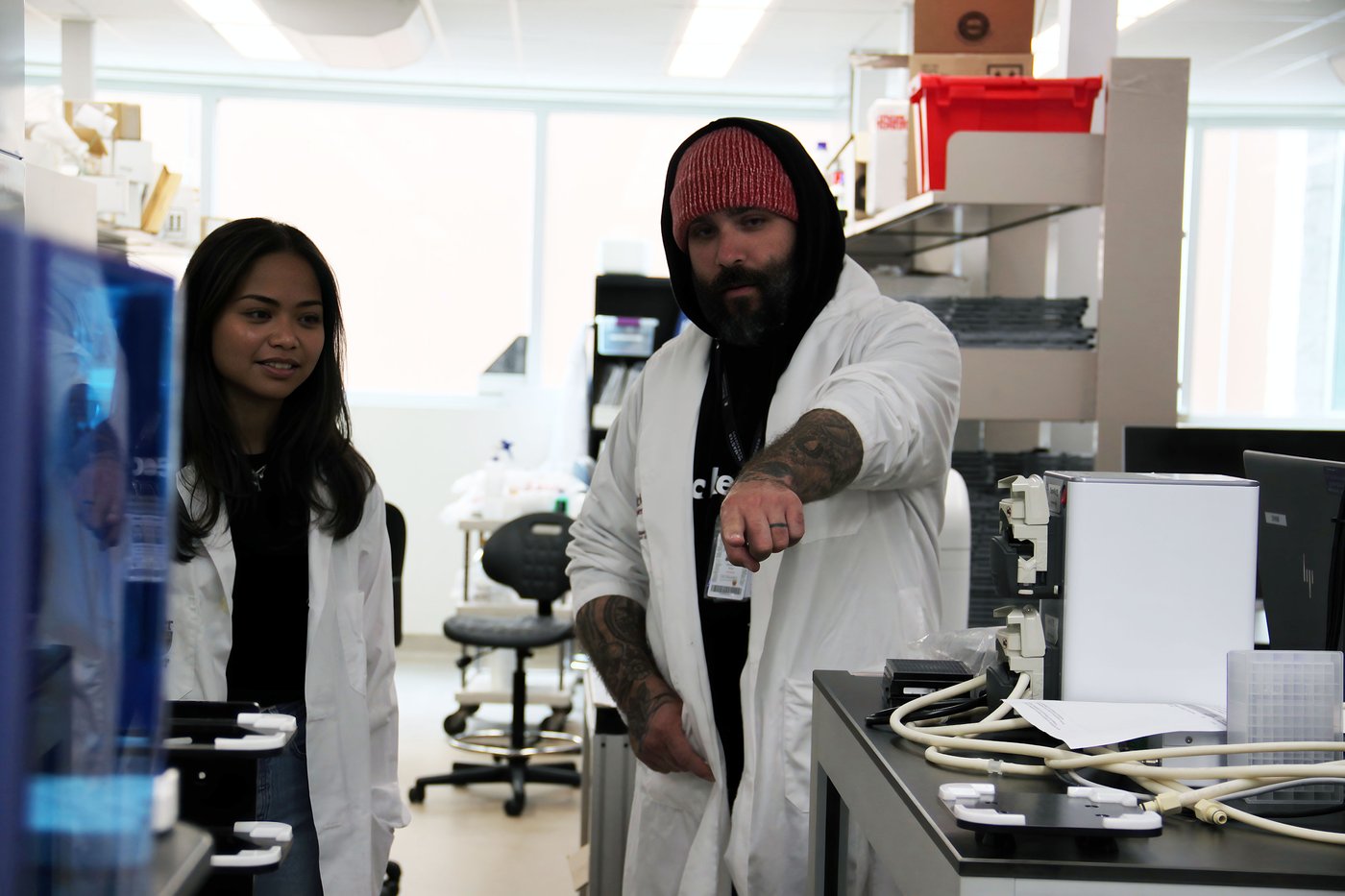Science
AI-Driven Breakthrough Antibiotic Treatment for Bowel Disease Emerges

A researcher at McMaster University has made significant strides in the fight against Crohn’s disease and inflammatory bowel disease by leveraging artificial intelligence to develop a promising new antibiotic treatment. Jon Stokes and his team, in collaboration with the Massachusetts Institute of Technology, successfully isolated this antibiotic in less than six months, a process that typically takes years and can cost millions of dollars.
By utilizing AI sequencing techniques, Stokes’s lab completed the initial stages of the project for approximately $60,000. This rapid development could potentially transform treatment options for patients suffering from these debilitating conditions, which are notably prevalent in Canada. In fact, Canada has one of the highest rates of inflammatory bowel disease globally, yet there is currently no cure available.
Implications of AI in Medical Research
The successful application of AI in this context has drawn attention from experts in the field. Wyatt Tessari L’Allié, founder of AI Governance and Safety Canada, emphasized the importance of maintaining oversight in AI-driven research. He noted that while the use of AI can yield positive outcomes, it is crucial for researchers to validate and double-check the results produced by AI systems.
Despite the promising nature of this research, Tessari L’Allié pointed out that there is currently no comprehensive AI legislation in Canada that encompasses healthcare. Instead, medical applications of AI are regulated on a case-by-case basis by Health Canada. This framework underscores the need for careful scrutiny and regulation as AI technologies continue to evolve.
A New Hope for Patients
The implications of this research extend beyond the laboratory. With the rising incidence of inflammatory bowel disease, advancements in treatment options are critical for improving patient outcomes. The innovative approach taken by Stokes and his colleagues illustrates how AI can accelerate the development of vital medical therapies.
The findings from McMaster University highlight not only the potential of AI in medical research but also the need for continued investment in this area. As this technology becomes increasingly integrated into the healthcare sector, it could pave the way for faster, more efficient drug discovery processes.
This report by The Canadian Press was first published on October 5, 2025. The ongoing research at McMaster University serves as a beacon of hope for those affected by Crohn’s disease and inflammatory bowel disease, illuminating the path toward new treatments that could ultimately change lives.
-

 Science2 months ago
Science2 months agoToyoake City Proposes Daily Two-Hour Smartphone Use Limit
-

 Health2 months ago
Health2 months agoB.C. Review Reveals Urgent Need for Rare-Disease Drug Reforms
-

 Top Stories2 months ago
Top Stories2 months agoPedestrian Fatally Injured in Esquimalt Collision on August 14
-

 Technology2 months ago
Technology2 months agoDark Adventure Game “Bye Sweet Carole” Set for October Release
-

 World2 months ago
World2 months agoJimmy Lai’s Defense Challenges Charges Under National Security Law
-

 Technology2 months ago
Technology2 months agoKonami Revives Iconic Metal Gear Solid Delta Ahead of Release
-

 Technology2 months ago
Technology2 months agoSnapmaker U1 Color 3D Printer Redefines Speed and Sustainability
-

 Technology2 months ago
Technology2 months agoAION Folding Knife: Redefining EDC Design with Premium Materials
-

 Technology2 months ago
Technology2 months agoSolve Today’s Wordle Challenge: Hints and Answer for August 19
-

 Business2 months ago
Business2 months agoGordon Murray Automotive Unveils S1 LM and Le Mans GTR at Monterey
-

 Lifestyle2 months ago
Lifestyle2 months agoVictoria’s Pop-Up Shop Shines Light on B.C.’s Wolf Cull
-

 Technology2 months ago
Technology2 months agoApple Expands Self-Service Repair Program to Canada









